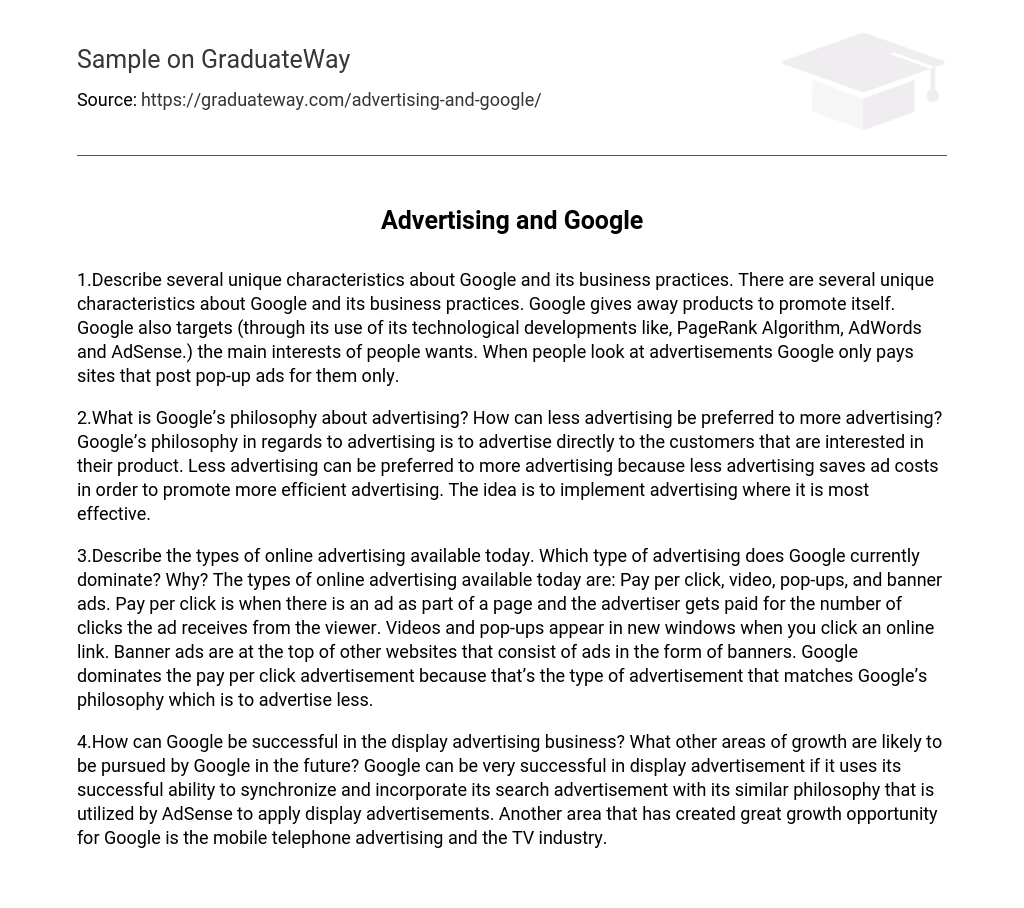1.Describe several unique characteristics about Google and its business practices. There are several unique characteristics about Google and its business practices. Google gives away products to promote itself. Google also targets (through its use of its technological developments like, PageRank Algorithm, AdWords and AdSense.) the main interests of people wants. When people look at advertisements Google only pays sites that post pop-up ads for them only.
2.What is Google’s philosophy about advertising? How can less advertising be preferred to more advertising? Google’s philosophy in regards to advertising is to advertise directly to the customers that are interested in their product. Less advertising can be preferred to more advertising because less advertising saves ad costs in order to promote more efficient advertising. The idea is to implement advertising where it is most effective.
3.Describe the types of online advertising available today. Which type of advertising does Google currently dominate? Why? The types of online advertising available today are: Pay per click, video, pop-ups, and banner ads. Pay per click is when there is an ad as part of a page and the advertiser gets paid for the number of clicks the ad receives from the viewer. Videos and pop-ups appear in new windows when you click an online link. Banner ads are at the top of other websites that consist of ads in the form of banners. Google dominates the pay per click advertisement because that’s the type of advertisement that matches Google’s philosophy which is to advertise less.
4.How can Google be successful in the display advertising business? What other areas of growth are likely to be pursued by Google in the future? Google can be very successful in display advertisement if it uses its successful ability to synchronize and incorporate its search advertisement with its similar philosophy that is utilized by AdSense to apply display advertisements. Another area that has created great growth opportunity for Google is the mobile telephone advertising and the TV industry.





